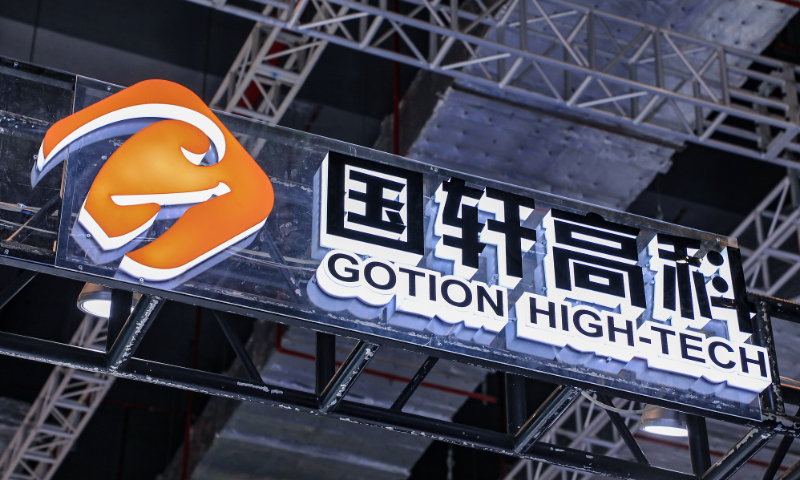
Photo: VCG
New US tariffs will have little impact on business expansion, said senior executives from one of China's leading electric vehicle (EV) power battery firms on Friday, days after the US announced new tariff rates on several Chinese products, including a major hike in levies on Chinese EVs.
They said that their determination to expand overseas remains unchanged, and will not be shaken by temporary difficulties.
The tariffs suggest increasing US trade protection, but actually it shows that the strategy of setting up factories in the US is right, said Wang Quan, secretary of the board at Gotion High-tech Co, on Friday.
"We have always insisted on exporting our production capacity to the US instead of just some technical cooperation. Our strategy in the US can be smoothly promoted, which proves that our overseas strategy in the US is correct," Wang added.
"This tariff has no impact on us currently, and I believe it will have no impact in the future," said Chen Ruilin, vice president of Gotion High-tech's international business department.
"Our target is to be an international EV battery company, and we must stand firmly in each country. Our current production capacity construction in the US is still advancing," Chen said, adding that the US tariff move "also consolidates our determination in going abroad."
"Whether it's the Americas, Europe and Africa, or the Asia-Pacific region, our resolve to move forward will not be shaken by minor difficulties," Chen said.
The remarks came after US President Joe Biden announced on Tuesday a quadrupling of tariffs on imported Chinese electric vehicles, from 25 percent to 100 percent. The tariff rate on lithium-ion EV batteries will more than triple to 25 percent.
Biden also announced new tariffs on solar equipment and semiconductors.
The move is being seen as part of the Biden administration's plan to revise the Trump-era tariffs, so as to target China's strategic industries. Chinese experts said that the Chinese EV industry, which has been rising rapidly to global prominence, has become a top target for the US crackdown.
As for Gotion High-tech, the company recently filed a lawsuit against a local community in Michigan for breach of contract regarding supply of water for a new facility. The company said it strictly complies with local laws and regulations, and ensures legal compliance when conducting business overseas.
Chinese enterprises may encounter some geopolitical issues when establishing factories in the US, but Gotion is still very positive about addressing these issues, Chen said.
The company has overseas operations in Europe, Africa and the Americas, but its most focused and mature projects are in the Asia-Pacific region, where it has advantages in areas such as transportation costs, as well as a full industry chain from production capacity to exports.
The target for annual production capacity in the Americas is 100 gigawatt hours by 2030, Chen said.
On Friday, the company released new products and technologies, including all-solid-state battery technology, which is currently a hot topic in the industry.
It also released a G-Current battery with super-fast charging technology, enabling 80 percent energy replenishment in 10 minutes of charging and 90 percent in 15 minutes, accordion to Cao Yong, vice president of Gotion High-tech's Engineering R&D Institute.




